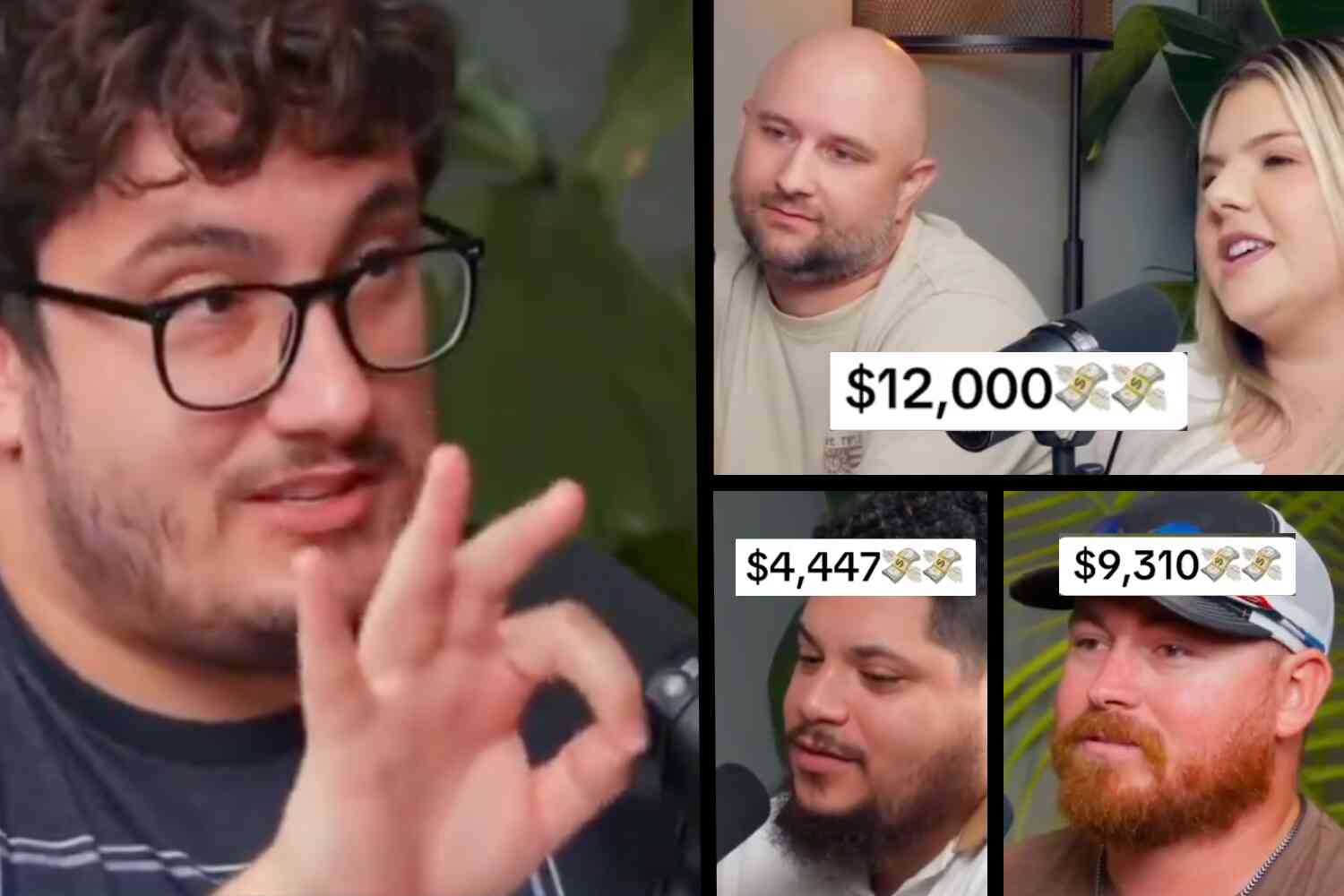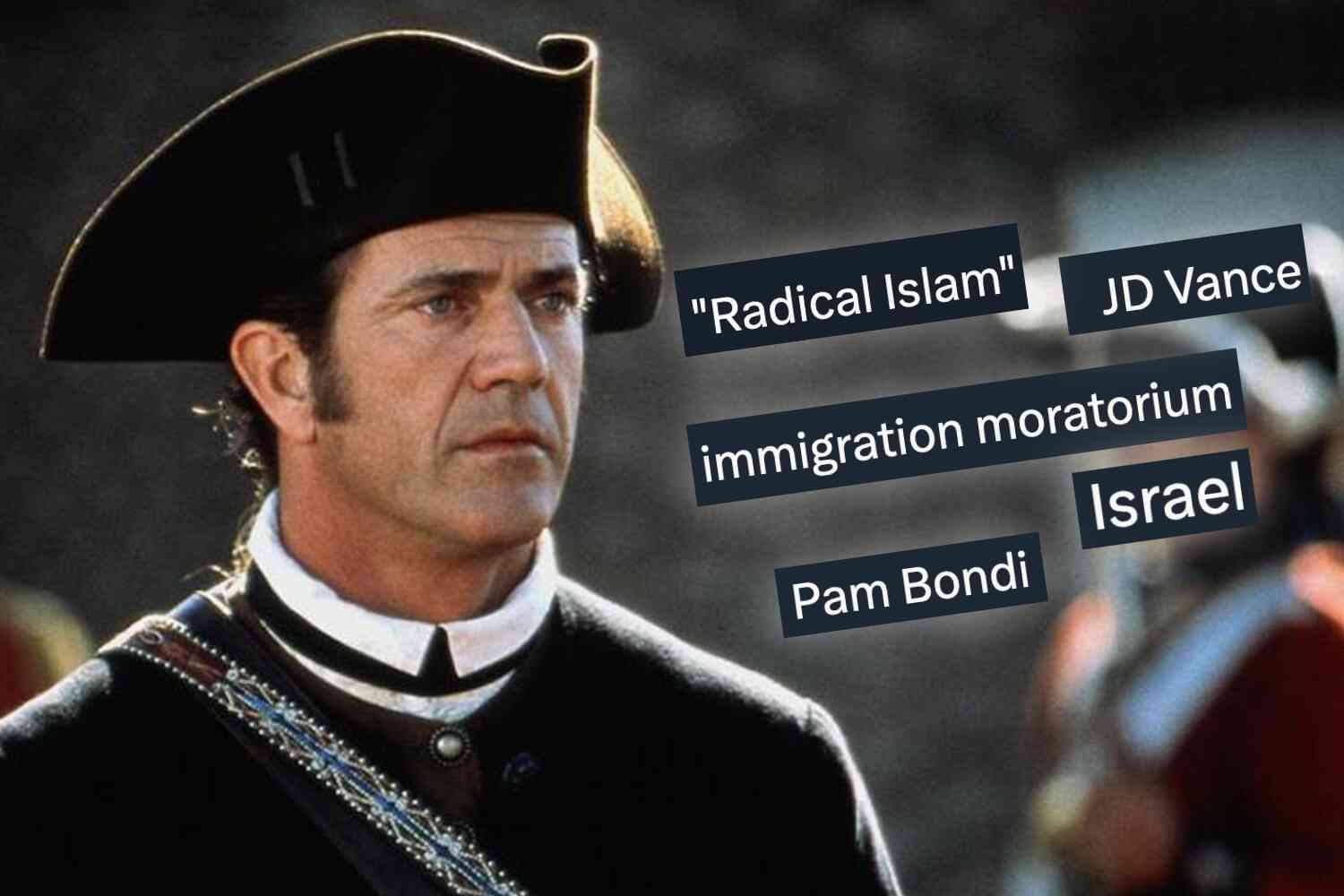The mentally ill deserve our compassion and understanding. They also deserve our honesty, and making believe they aren't mentally ill is about as dishonest and potentially destructive as it can get.
David Marchese, a staff writer for The New York Times Magazine, has been touted as being an "expert interviewer," and the Times certainly leans on him heavily for that task. He is good at giving interview subjects room to make their point without getting in the way and asking questions that will draw out honest answers.
However, an expert interviewer would also hold his or her subject accountable for contradictions, inconsistencies, and the occasional non sequitur rather than letting them slide, affirming them, or worse, engaging in the same kinds of deceits. That is exactly what Marchese does right from the start.
Sociopaths are modern-day boogeymen, and the word "sociopath" is casually tossed around to describe the worst, most amoral among us. But...
This is a classic rhetorical device, setting up a contrast. He tees up two here, "boogyemen" and "most amoral" and the payoff should be knocking those two down in order.
...they are not boogeymen; they are real people...
So far so good.
...and, according to Patric Gagne, widely misunderstood.
This is a real sleight of hand. He sets up the purported misconception that sociopaths are boogeymen, and then states emphatically they are not, but in setting up the misconception that they are amoral, he ducks his own premise and avoids answering by pivoting to them being "misunderstood."
Why? Because they are, by definition, the most amoral. They may also be misunderstood, but regardless, Marchese frames this specifically to leave the reader with the impression that maybe sociopaths are not amoral. They are. Gagne, his interview subject, admits as much, repeatedly.
Gagne wrote "Sociopath," her buzzy forthcoming memoir, to try to correct some of those misunderstandings and provide a fuller picture of sociopathy, which is now more frequently referred to as antisocial personality disorder.
Getting real "minor attracted persons" vibes here in terms of framing the condition as something far more benign than it is.
As a child, Gagne found herself compelled toward violent outbursts in an effort to try to compensate for the emotional apathy that was her default. As she got older, those compulsive behaviors turned into criminal ones like trespassing and theft.
The piece includes some side notes, inserted by an editor. Here, the word "trespassing" was flagged with this note:
Specifically, breaking into people's homes.
The note did not appear the first time he used the word, but the second, a couple of paragraphs later. I find it telling that an editor felt the need to clarify this. Why didn't Marchese just write "breaking into people's homes" instead of the more anodyne "trespassing," which typically conjures up images of wandering onto someone's property?
Because he had already been captured by his subject.
Yes, he's technically correct calling it trespassing, but this is dishonest enough, or at least misleading enough, to get flagged by a New York Times Magazine editor.
Eventually, she discovered that there was a name — that dreaded word —
It's not a name, its a diagnosis.
...that could be used to describe and explain her experiences of remorselessness, criminality and lack of empathy. The desire to destigmatize her experience and also to help others who may share it (Gagne previously worked as a therapist to those with the disorder and has also written about sociopathy) put Gagne on a path that led to "Sociopath."
I understand wanting to destigmatize mental illness, but destigmatize her experience? Of what? Breaking into houses?
Is that something we really want to destigmatize?
"I'm not trying to say, ‘Sometimes we do bad things, but we're really sweet on the inside,'" says Gagne, who is 48. "I'm saying there is more to this personality type."
Note she refers to it as a personality type, not a personality disorder.
You know, no big deal, think of it as one of the four classic personality types, like director, socializer, thinker, and sociopath.
I think Gagne is trying to be honest overall, often in revealing ways, but in this case, she is speaking in the affirm-everything-always language of modern leftism.
When I hear the word "sociopath," I think of an antisocial, uncaring person who is interested only in satisfying his or her own desires. What's a clearer picture?
Sociopathy is a perilous mental disorder; the traits associated with sociopathy aren't great.
That triggered another editor's note:
"Traits may include lack of remorse, deceitfulness and a disregard for the feelings of others as well as right and wrong."
Yeah, I think you could probably characterize those traits as "not great."
And again, the fact that an editor felt the need to step in and add context, essentially doing Marchese's job for him, tells you just how captured Marchese is.
But that only tells part of the story.
Yes, the most important part, at least to others, which as a sociopath she should understand.
The part that's missing is you can be a sociopath and have a healthy relationship.
It depends on how you define "healthy," but okay, sure.
You can be a sociopath and be educated.
Can you say "non sequitur?" Whoever said sociopaths could not be educated?
That's a very uncomfortable reality for some people. People want to believe that all sociopaths are monsters...
"Monster" is a hyperbolic word to use here, purposefully I'm sure; however, someone whose "traits may include lack of remorse, deceitfulness and a disregard for the feelings of others as well as right and wrong" could certainly be characterized as something very much unpleasant.
...and that all monsters are easy to spot.
That's a straw man. Nobody thinks that. That's why child predators are so often successful in their criminality.
Marchese follows with an anecdote from her book where she stabbed a kid with a pencil in her school and asks her how she learned to control these impulses.
As I got older I understood, OK, there's a name for this, there is a whole group of people who share this diagnosis. Once I understood that I wasn't out in space untethered and going crazy,...
Well....
...I was on the path to understanding that when I had those feelings of "go steal a car," I could go, Yes, I could do that, but now I understand what's going on.
What's going on? Empathy? Kindness towards others? A sense of guilt?
No, those would require an understanding of morality.
What's going on is she figured out that there were consequences.
Every once in a while, I will have an urge to do something destructive just because I can, and my redirect is, do you want this destructive behavior? Or do you want to continue to maintain this life that you have, which requires that you not do those things? I have to have that conversation with myself.
As a coping mechanism goes, that makes sense. It permits her to function in a civil society, it allows her a life. She has a husband and kids, even.
However, if the only thing holding you back from destructive behavior, from, say, stabbing a kid with a pencil because you feel like it, are consequences, what happens when you you remove the consequences? What happens when an unruly dog controlled by a shock collar realizes the battery has gone dead?
The calculus changes.
That's a mighty tenuous thread to hang your safety on.
As I mentioned, she's married. This is how she explains love, and really, for all my complaints about this piece, the places where Marchese just let's her go on is fascinating, a real peak inside the mind of a sociopath. I know it was all intended to humanize sociopaths, and they are God's children, but the total lack of empathy, the pure transactional nature of their thinking is terrifying, like your worst nightmares of an amoral AI.
The way I experience love seems to be very different from the so-called neurotypical experience.
The term, "neurotypical" is used eight time in the piece, once by Marchese, and seven times by Gagne, often in less than friendly ways.
My experience of love seems less emotional. If I had to explain what love feels like to me, I would say symbiotic. So, a relationship that's beneficial to both people involved. Not transactional, not possessive, not ego-driven. Mutual homeostasis. It's not that I'm unable to access emotions or empathy. It's that my experience of those emotions is different.
No, I don't think so. I obviously can't crawl inside Gagne's head, but what she describes here is a mutually beneficial partnership. That's not love. That's a law firm.
The very fact that she strains here to point out that her "experience of those emotions is different," demonstrates one, she has no understanding of those emotions (she's a sociopath after all), and two, she really, really, wants to mainstream sociopaths.
Again, it's great she's found coping mechanisms that permit her to have a life she clearly finds beneficial to her, but we really need to stop trying to make believe that everything is always alright all the time no matter what.
How about kids?
As a woman — forget my personality type — you're inundated with all these images: Your child is born, it's incredible. I did not experience that. I didn't have that immediate baby is born, I'm overwhelmed with love. It was, I don't know this person. This person is very loud! That connection just isn't there. It's not innate.
"This person is very loud!"
But over time, you can build it. Much like when I first met [my husband]. I knew right away that this person was going to be important in my life, but I didn't have those sweeping romantic, flowery emotions affiliated with that experience. That was the same when I first met my son. Now I just think he's a great kid!
Hey, she's making it work, I guess. Surely there are worse mothers, but it is a fascinating peek into her psyche.
Doesn't mean I'd trust her.
When Marchese asks her how she developed a sense of morality, she says this:
Just because I don't care about someone else's pain, so to speak, doesn't mean I want to cause more of it.
Well, there's that!
And once again, she goes transactional. Marchese misframed the question. She never developed a sense of morality, she learned how to pantomime one in order to get what she wants.
I enjoy living in this society. I understand that there are rules. I choose to follow those rules because I understand the benefits of this world, this house where I get to live, this relationship I get to have. That is different from people who follow the rules because they have to, they should, they want to be a good person. None of those apply to me. I want to live in a world where things function properly. If I create messes, my life will become messy.
That's not morality.
That's the shock collar working.
A discussion follows about the ways Gagne "masks" or adopts "prosocial mannerisms" in order to make "neurotypicals" feel comfortable around her which she says she does because she finds neurotypicals interesting. (And yes, this definitely gives off an ant-under-the-microscope vibe, and not the only time.) She notes she specifically is doing this during the interview for the benefit of Marchese.
What's an invasive question you want to ask me?
Why are you interested in me? Why are you interested in sociopathy? Talk to me about your darkness. I'm not expecting answers.
You want to get into it?
Oh, yes. I find neurotypical people absolutely delightful!
We're delightful!
Good to know.
Naturally he bites at the opportunity to make himself the subject of the interview.
This is easily the most boring part of the interview, a back and forth between the sociopath and the narcissist playing rhetorical footsie over who is manipulating who.
I'll skip ahead to the part where Marchese makes the sociopath's case for her.
Well, I would say that one question that the book raised for me was the extent to which a lot of behaviors that people do could be considered sociopathic, and we just don't understand them that way. Plenty of us do things that we know are bad because the transgressions feel good.
Hey, we're all sociopaths after all!
Talk about a leading question. That doesn't even qualify as a softball, he's well into Wiffle Ball territory now.
It feels good. Why? I think it feels good because it feels free. To do something bad, it's like, I don't give a [expletive]. The consequences — be it internal guilt or getting thrown in jail — happen after. In this moment, I'm going to do this because it feels [expletive] great to just not care. That is what the sociopath experience is almost all the time.
Note her focus on consequences. That's not what holds back most people in most circumstances from behaving badly. It's a sense of morality and empathy from which flows kindness and graciousness and helpfulness.
Yes, we all have dark thoughts, but thoughts aren't behaviors.
The only thing holding back sociopaths like Gagne from acting out on her impulses is the threat of punishment.
"A lot of behaviors that people do could be considered sociopathic," as Marchese states, but that doesn't excuse sociopaths, it indicts people who behave like sociopaths.
There is a lot more to this interview. As mentioned above, she used to be a therapist, which is an interesting occupation for a sociopath, however I will leave you with what Marchese leaves us with at the end, a question that serves as a perfect bookend to this piece:
Do you see your sociopathy as beneficial to you?
Yes, we're going to get into the upsides of mental illness!
I think my sociopathy is entirely beneficial to me.
Perfect. And perfectly honest.
I see my friends struggling with guilt. On an almost daily basis I think, I'm glad I don't have that. The psychological characteristics of sociopathy are not inherently bad.
For the sociopath!
Lack of remorse and shame and guilt has been misappropriated to mean this horrible thing,...
Misappropriated. The very things that make us human. That separate us from the animals, misappropriated.
Probably by those neurotypicals!
...but again, just because I don't care about you doesn't mean I want to cause you more pain.
Only because, as you have stated repeatedly, you don't want to cause pain to yourself.
I like that I don't have guilt because I'm making my decisions based on logic, based on truth, as opposed to ought or should.
Oh, so she's Spock now.
Everyone likes Spock!
Now, there is a flip side. I don't have those natural emotional connections to other people, but I've never had those. I don't feel like I'm missing anything. Just because I love differently doesn't mean my love doesn't count.
I can't get into her head, so maybe her love, or whatever it is she perceives, does count.
But so does the fact that she is otherwise a sociopath.
Marchese ends it right there. He was happy to interject his thoughts along the way, but goes silent where a conclusion might normally go, or at least an epilogue.
So I'll add one.
I think it's great that Gagne has found a coping mechanism that has provided her a life she enjoys, and presumably, her husband and children enjoy.
I think it's good that she wrote a book to help other people suffering from this illness find success and a form of happiness as she has.
However, I think it's deluded to not still consider her as someone who suffers from a serious mental illness.
There is no cure, there isn't really a treatment other than the kind of behavior modifications she has adopted together with mental coping skills.
But we don't have to pretend that sociopaths are perfectly fine and just like you and me. They aren't, and that's okay. It's a serious mental illness that requires serious care and discourse and recognizing that the victims' struggle with it is real as well.
That's the difference between being a child and an adult.
Adults don't spin fantasies.
P.S. Now check out our latest video 👇
Disclaimer: The opinions expressed in this article are those of the author and do not necessarily reflect the opinions of Not the Bee or any of its affiliates.









